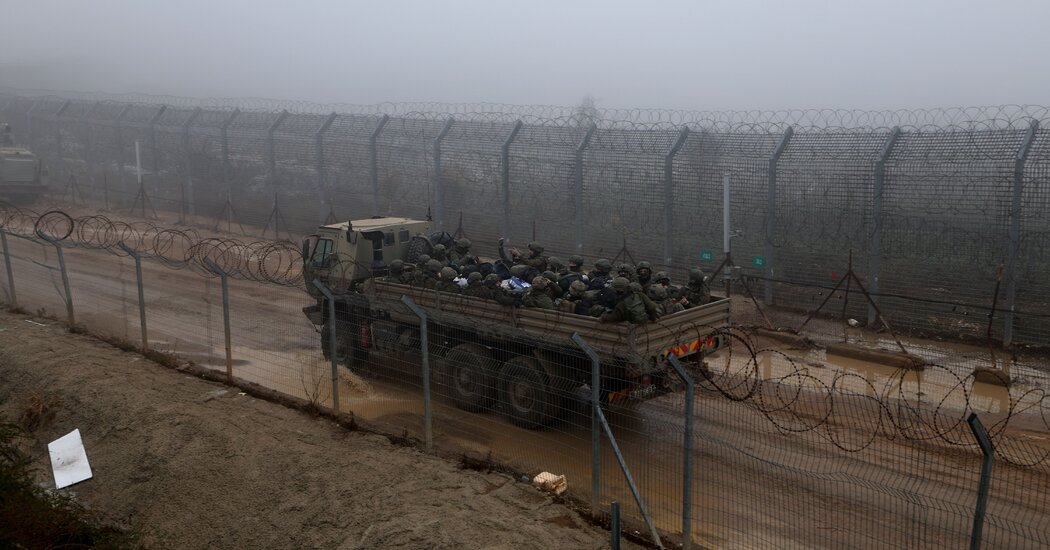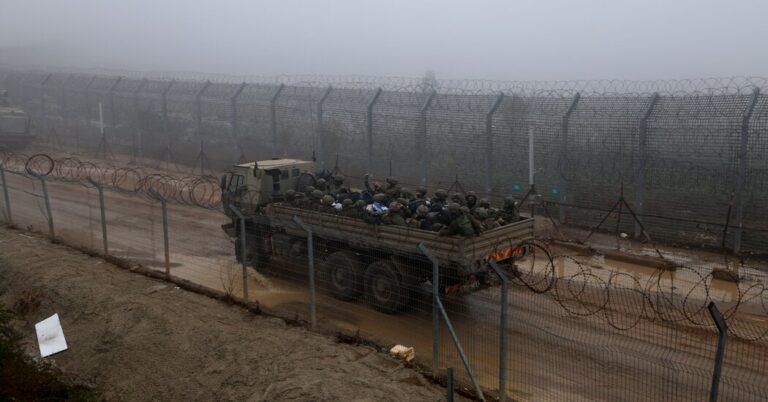The Israeli military said on Sunday it had conducted “operational raids” in recent weeks on Syria’s Mount Hermon, continuing a military campaign on Syrian soil that is drawing growing international condemnation.
The Syrian Observatory for Human Rights, a Britain-based Syrian war watchdog, also reported airstrikes around the Syrian capital, Damascus, on Sunday, attributing them to the Israeli army. The attacks targeted an ammunition depot used by the regime of President Bashar al-Assad, ousted last month in a rebel offensive, the observatory said. The Israeli military did not immediately comment on the airstrikes.
Israel’s continued military operations in Syria, which it said on Sunday were intended to “strengthen the defense of Israeli citizens,” have drawn accusations from the United Nations and some member states that Israel is violating a decades-old ceasefire by sending its troops within and beyond a buffer zone between countries.
The raids come just days after Israeli Foreign Minister Gideon Sa’ar said he had met with members of the United Nations peacekeeping mission on the Syria-Israel border. The United Nations Disengagement Observer Force, known as UNDOF, was established by the Security Council in 1974 to maintain a ceasefire between Israeli and Syrian forces after the 1973 war and to oversee the buffer zone established by the agreement .
After rebel forces in Syria suddenly toppled the Assad regime last month, Israeli ground forces advanced into and beyond the demilitarized zone, marking their first overt entry into the country in half a century and prompting the United Nations secretary general United, António Guterres, to denounce Israel’s violations. of the 1974 agreement.
Mr Sa’ar said in a statement that “extremist armed groups” had attacked peacekeepers in the buffer zone, violating the ceasefire. UNDOF did not immediately respond to a request for comment on those claims.
Israeli attacks in Syria complicate an already extremely complex situation as Syria’s new leadership attempts to rebuild a nation devastated by more than a decade of civil war and gain international recognition.
Ahmed al-Shara, the rebel commander who led the coalition that overthrew al-Assad and took interim leadership of the country, criticized the Israeli army’s actions in Syria in an interview with the New York Times and other media outlets in December, shortly after taking power. He said Syria will continue to respect the 1974 ceasefire agreement and called on the international community to ensure that Israel also respects it.
But Israel has repeatedly signaled that it intends to remain in Syria for as long as it deems necessary. When Prime Minister Benjamin Netanyahu paid a December visit to Mount Hermon, seized by Israeli troops last month, he said they would remain in the country “until another agreement is found that guarantees Israel’s security.”
His Defense Minister, Israel Katz, who accompanied the prime minister on the visit, said Israel’s military presence serves as a “deterrence against the rebels in Damascus, who claim to present a moderate face but are among the most extremists”.
Mr. al-Shara’s rebel faction, Hayat Tahrir al-Sham, once affiliated with Al Qaeda, broke with the group in 2017. It has been designated a terrorist organization by the United States, the United Nations and others, but some countries say they may consider revoking this designation. The decision, they say, will depend on whether Syria’s democratic transition has taken place and whether rebel leaders demonstrate respect for minority groups.
In recent weeks, al-Shara has sought to portray himself as a diplomat focused on rebuilding his country, meeting with U.S. officials and those of European and Middle Eastern nations.
There are some indications that the new Syrian government would also welcome relations with Israel. The new governor of Damascus, Maher Marwan, in an NPR interview in late December, called on the United States to use its influence with Israel to encourage the establishment of diplomatic relations.
For now, however, Israel appears more focused on military action.
In addition to the invasion of Israeli ground troops into Syria, the Israeli army has also conducted intense airstrikes there, war observers say, both before and after the fall of al-Assad. In a report on Thursday, the Syrian Observatory for Human Rights said it had documented more than 370 Israeli attacks in Syria last year, most of which occurred in recent weeks.





